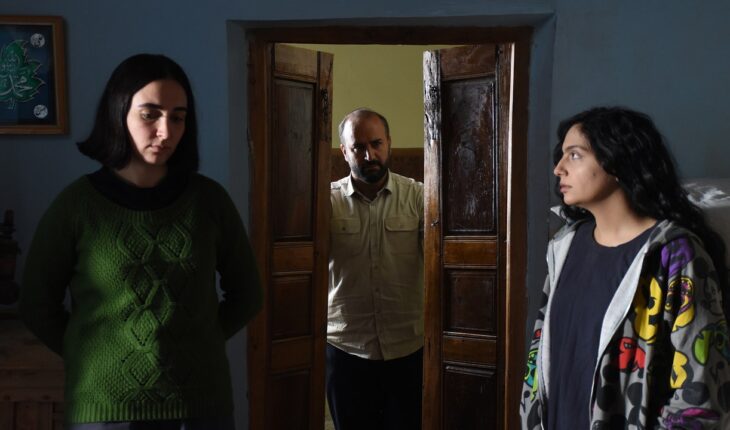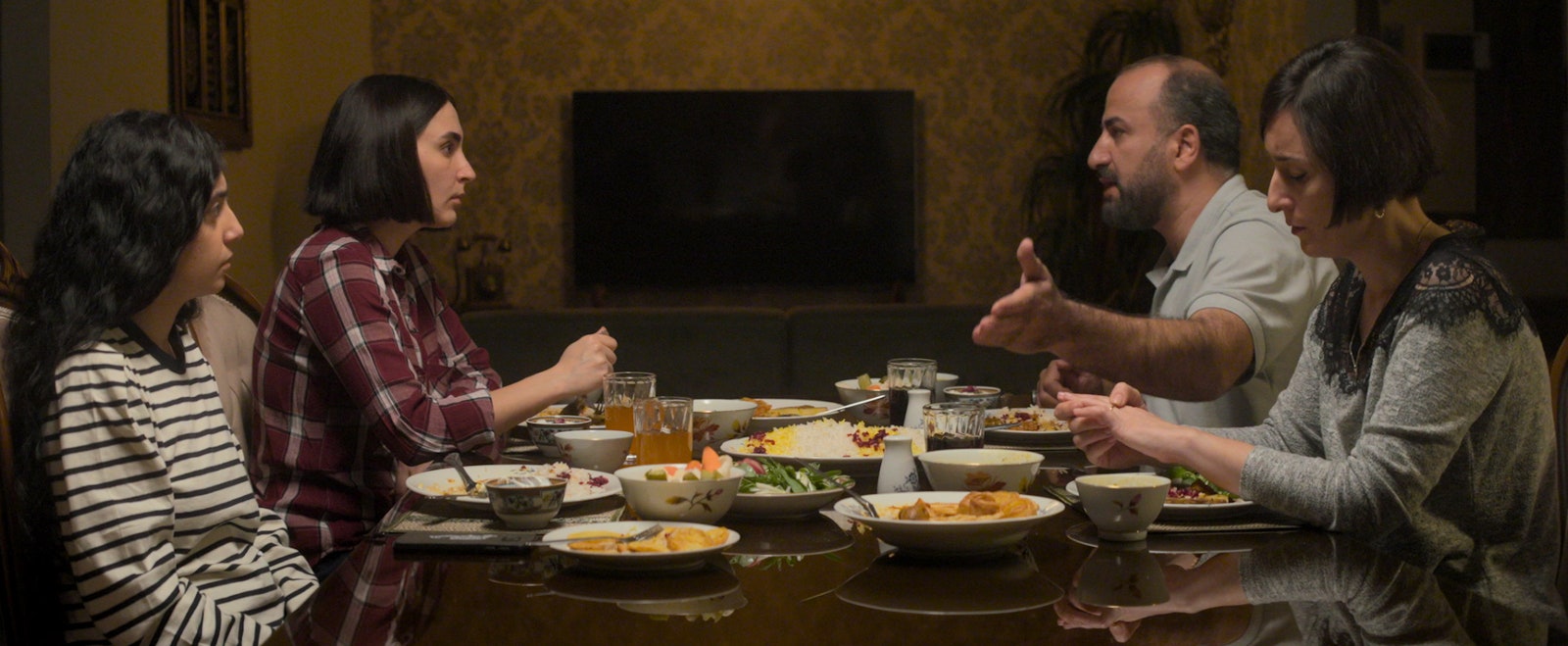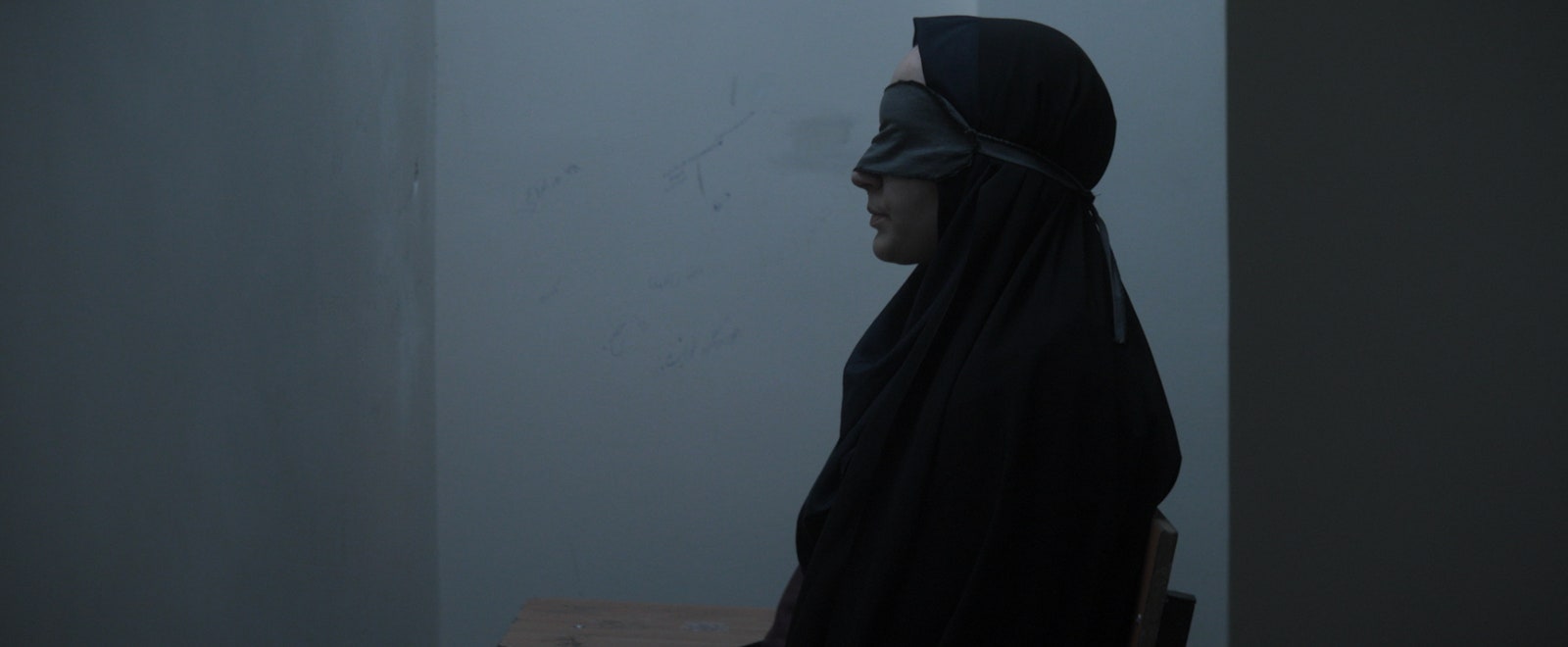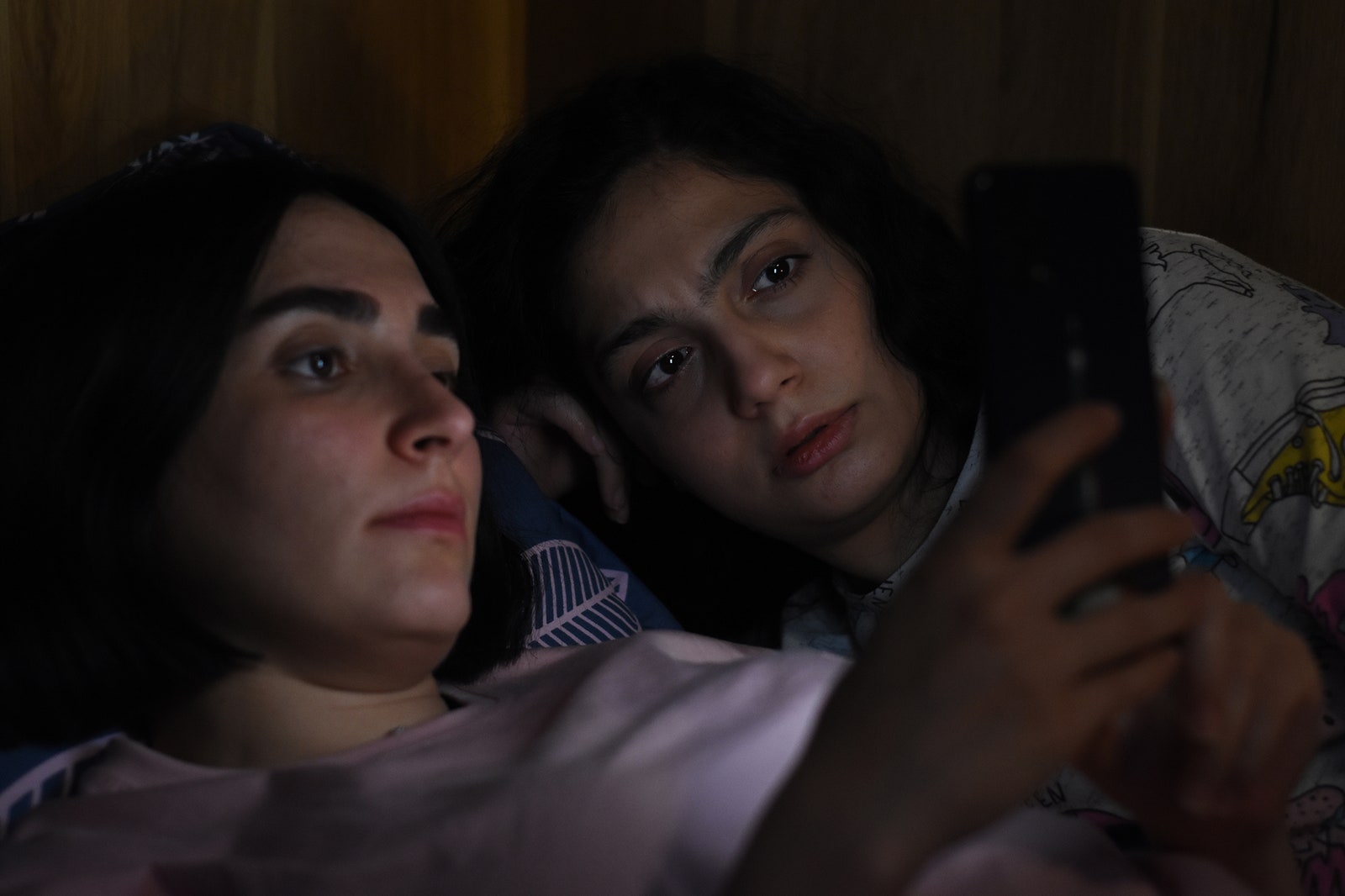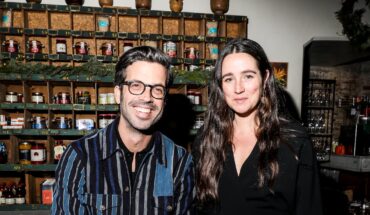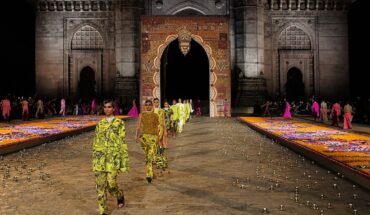Before the first image is even shown, the words “This film was made in secret” appear on a black screen. The film is Germany’s submission for foreign-language film at this year’s Oscars, Mohammad Rasoulof’s The Seed of the Sacred Fig. Rasoulof is not German, and the film contains not a single word of German dialogue. But Germany is currently Rasoulof’s home after escaping Iran as a political refugee facing a possible eight-year prison sentence. Rasoulof recently received Best Director by the Los Angeles Film Critics Association, and the film received a nomination in the Best Non-English Language Film category from the Golden Globes.
What does it mean to film a movie in secret in Iran? The film certainly doesn’t look like it was shot surreptitiously. There are no hidden cameras, à la Borat, or shaky handheld footage from an iPhone. However Rasoulof, his two stars, Setareh Maleki and Mahsa Rostami (who also escaped to Germany to avoid persecution), and the rest of his cast and crew faced an unusual level of danger, to say the least. At every stage from casting to rehearsals to filming, they risked being arrested by the Iranian authorities.
Along the way, they picked up some tricks to not get caught. When shooting exteriors, the female cast wore their hijabs tightly around their heads to not show even the slightest strand of hair. “The way you wear your hijab denotes, on the one hand, your personal religiosity, but on the other hand your relationship with the regime,” says director Rasoulof, speaking through a translator over Zoom. So for exterior scenes, they were able to fool the Iranian security apparatus into thinking they were filming an official state-produced television program. “Basically whoever passed by would look and immediately think that it was probably a TV production just because the aesthetics aligned so closely to what you would see on TV,” Rasoulof explains. If at any point they were caught, the production would’ve been shut down immediately. “If they arrest us, well, there’s nothing you can do,” Rasoulof says nonchalantly. Overall, when he talks about the dangers of making this film, he remains unbothered, as if he’s telling the “same old story” when confronted with the censorship in Iran.
Courtesy of Neon.
The Seed of the Sacred Fig is a family drama about a father, Iman (played by Misagh Zare), who gets promoted to investigating judge in Tehran. He has been working toward this promotion his entire professional life. His wife, Najmeh (played by Soheila Golestani), is proud of her husband’s achievement, which will mean a higher salary and a bigger apartment, but she’s also concerned about how it will affect their family’s way of life. Iman and Najmeh have two daughters, 21-year-old Rezvan (played by Rostami) and teenager Sana (played by Maleki). Because of his new position, Iman expects his daughters to stay off social media (good luck, babe) and never tell anyone of their father’s job. The girls must be model citizens upholding the Iranian government’s ideals. They aren’t particularly rebellious, but they are students and become involved with political protests surrounding women’s rights in the country.
When a friend of the girls gets hit by a bullet while attending a protest, Najmeh must somehow be a loving mother to her sweet but curious kids, and a staunch supporter of her husband. The final act of the film becomes increasingly suspenseful as Iman’s behavior becomes accusatory and violent.
The scenes at home, particularly with Najmeh and her daughters, feel universal: The girls play on their phones, do each other’s hair, talk fashion. All pretty normal stuff. But actually filming these scenes, with the actors not wearing the hijab, is considered illegal. Finding actors who would be willing to do this involved many secret meetings and careful consideration. Golestani, who plays the mother, was already a political figure, having been arrested for posting a viral video in 2022, in which she appeared without a headscarf in protest in solidarity with the “Woman, Life, Freedom” protests. Rasoulof expected her to be game to film an underground film.
Finding the two daughters proved to be trickier. The producers approached Maleki, who plays the youngest daughter, and set up meetings with her in secret. They never revealed who the project was for, although Maleki says she had her suspicions. Rasoulof is perhaps the most famous figure in underground cinema in Iran, having had his film There Is No Evil premiere at the Berlin International Film Festival. “Finally, one day, they told me, ‘Today, you shall meet the director of the film.’ And he opened the door and he said, ‘My name is Mohammad Rasoulof.’ And I said, ‘Yes, of course, I knew it was you. I guessed it quite a while back,’” Maleki tells me over Zoom with the help of an interpreter. Rostami, who plays the eldest daughter, was only cast in the film three days before filming. She was not allowed to even read the script until after she completed the makeup test. This marks her debut as a professional actor, although she was also a fan of Rasoulof’s work, her favorite film of his being The White Meadows.
Rasoulof was rarely on set when filming. Instead, he had to direct the scenes remotely and provided direction via his assistant. There were many close calls during the filming of the movie, but the crew had contingency plans in place. While shooting a scene at a gas station, a couple of policemen turned up and asked the cast and crew for filming permits. The crew provided fake permits, and the cast switched to shooting “something that would not attract any unjust attention,” Rasoulof explains. “This is something that the cast and crew followed even if it was just strangers standing on set.” Meaning, the actors would go from filming real scenes for the movie to fake, controversy-free scenes if outsiders were watching.
Courtesy of Neon.
The film was completed in March of 2024, and shortly afterward Rasoulof was forced to make a decision that would affect the rest of his life. Rasoulof had been released from prison in 2023, but the Iranian government wasn’t done with him: In May, he was sentenced to eight years in prison over charges related to his earlier films and activism. “I could very well be a filmmaker in prison,” Rasoulof ponders. “But that would mean playing the role of a victim filmmaker sacrificed by Iranian censorship. And I really didn’t want to play that role. I couldn’t bring myself to play that role.” A few days after wrapping filming, Rasoulof fled through the mountains of Iran and made his way to Germany.
The Seed of the Sacred Fig premiered in Cannes in May of 2024. Rasoulof, Rostami, and Maleki were able to attend the glamorous red carpet. Golestani remains in Iran. Rasoulof says that, not surprisingly, the cast and crew of the film are under investigation for “spreading corruption and prostitution on Earth, propaganda against the Islamic Republic, and an act against national security.” The prostitution allegation is a result of the actresses showing their hair in the scenes that were filmed indoors.
The film received a special award at Cannes, and it’s considered a major awards contender this season. But how does this attention affect the actors left in Tehran? Is attention good or bad when fighting these charges? Rasoulof says, “It is very important that the Islamic Republic should know that the world is watching them and is keeping a close eye on the fate of everyone who made the film and is still inside Iran. The more it’s spoken about, the more they know that the world will not accept this level of repression in the artistic sphere.” He believes that the attention The Seed of the Sacred Fig is getting has made the regime behave less violently against those involved with the film.
Courtesy of Neon.
Asked about what they’ve heard from any of the actors left in Iran, Rostami, and Maleki seem less optimistic. They talk among themselves, then the translator offers this paraphrase: “Out of respect for their well-being, they think it’s best, in order to protect them as much as they can, not to talk about them at all, because it could create problems for them.” In other words…no comment.

